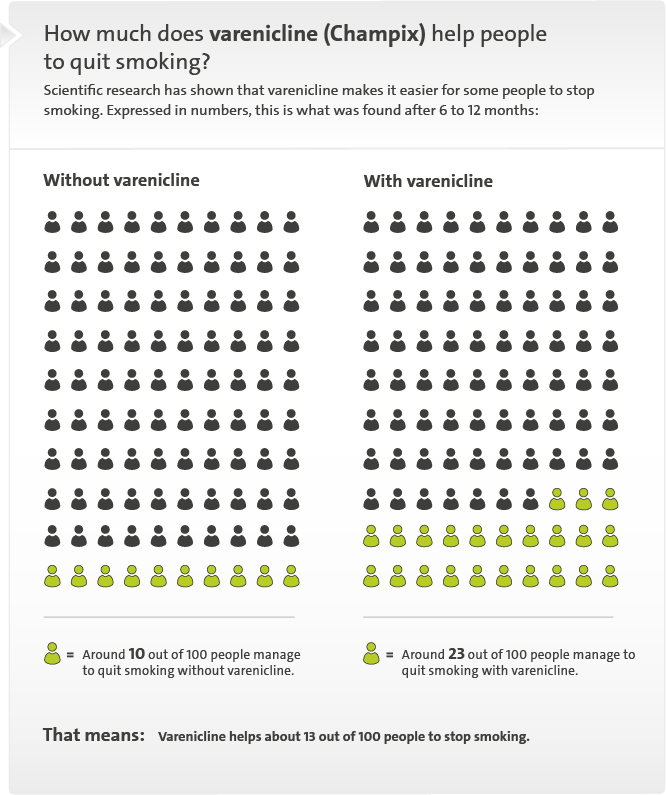Medication for quitting smoking

Varenicline (EU: Champix, U.S.: Chantix) can increase the chances of success if you are trying to quit smoking. The possible side effects include temporary sleep problems and nausea.
Bupropion (trade name: Zyban), varenicline (EU: Champix, U.S.: Chantix) and cytisine (Asmoken) are approved in Germany for quitting smoking. They are prescription-only, so they have to be prescribed by a doctor.
There are many studies on the effectiveness of varenicline. In the studies, the researchers looked at whether the participants still smoked, or had started smoking again, after 6 to 12 months.
The benefits of bupropion and cytisine are not clear because the manufacturers haven’t made all of the study data available.
There may be individual medical reasons related to why you should or shouldn’t use these medications. It is best to discuss this with your doctor. And it’s important to let your doctor know about any other medications you are taking. That helps to avoid possible interactions between the medications.
These medications may make you feel tired and affect your ability to drive because they influence chemical messengers in your brain. So it’s a good idea to wait before operating heavy machinery or driving a car to see how you react to them.

